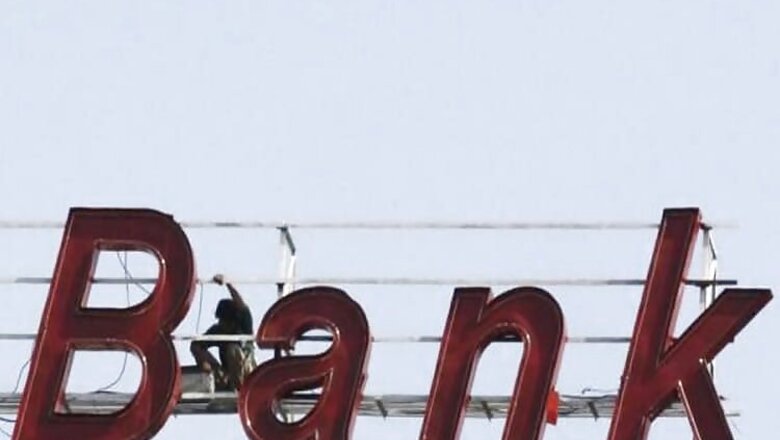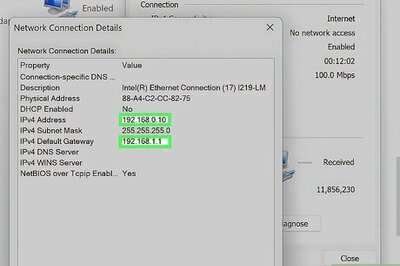
views
The Finance Minister's visit to the United States is coming to an end soon. The visit, an attempt to shore up confidence among foreign institutional investors (FIIs), was also an effort on the government's part to express it is open to criticism as well as new ideas to strengthen the economy, says Finance Secretary Rajiv Mehrishi.
In an exclusive interview to CNBC-TV18's Shereen Bhan, Mehrishi spoke on a wide array of issues impacting the Indian economy. Mehrishi says the government will be infusing $3 billion this year and more $6 billion in the next year in order to revive public sector banks (PSBs). He also says the real estate investment trusts (REITs) will be listed in this very fiscal.
Below is the verbatim transcript of Rajiv Mehrishi 's interview with Shereen Bhan on CNBC-TV18.
Q: This is the last slap if I could call it, that of the India Road Show. Meetings in Washington DC, New York and today in San Francisco – what are the outcomes that you would expect at the end of this nine day visit?
A: When we began this trip, the Finance Minister’s idea of the trip was quite clear that this is a trip which is to give a message that we are on the task of restructuring the economy, of restructuring the difficulties that have been there in the past, that we are open to new ideas, we are open to criticism, we have an open mind on all issues and thereby to increase investor confidence. So, this is about confidence building in USA because over the last few years that confidence had become a little shaken, so it is about restoring that confidence and so there have been meetings around that and that outcome has been positive.
Q: Speaking of specific issues, one of the concerns that I heard from most investors that I have spoken to is as far as public sector banks are concerned, not just the NPAs but also recapitalization. The Finance Minister has said that government now has more revenues to try and allocate more as far as PSB bank recap is concerned. How soon can we expect this, do we have to wait for the Budget? I believe presentations are going to be made by various banks to try and articulate their needs, what can we expect and how soon?
A: Actually I can just tell you what we are aiming at. I hope what we are aiming at, we are also able to achieve. What we are aiming at is an infusion of about $3 billion in the current year and perhaps twice as much in the next year. So, that is the broad time schedule- whether it will happen in August or January I can’t say. It doesn’t have to wait for the Budget because it is a process that is ongoing and we can always seek additional funds within the supplementaries. So, it doesn’t have to wait for the Budget. We have already some budget allocation provision there, we can use that to begin with and that is a billion dollar plus and we intend to increase that.
Q: You are saying it could be as high as $6 billion towards bank recapitalization?
A: Next year.
Q: And we don’t necessarily have to wait for the Budget?
A: In the current recapitalization of about $3 billion, we may not need to wait for the Budget. As I said, you can get the additional demand from supplementaries.
Q: The other issue that the Finance Minister spoke of was bringing down the government’s holding in public sector banks but he said that it is going to be in phases, it will have to be done gradually. When do we start that process?
A: Actually the disinvestment process as you know is a little complicated and it has to go through entire series of approvals and market has to be seen also where the market is and I believe the market is up in India again, so any time now we can expect some movement on that and I can’t say when but it will happen, some of that will happen in the current financial year.
Q: You mean as far as the public sector bank holdings being brought down?
A: Yes.
Q: So not just the other divestment candidates that have already been listed?
A: Also PSBs.
Q: Revenue mobilization was the other cause of concern that investors have spoken about. We have seen indirect tax collections move up as far as the last two months are concerned. Hopefully they will be sustainable but in terms of revenue mobilization what could be the other ideas that you could look at, any ideas that have come in from your meetings here?
A: No, as you are aware that we are trying to leverage funds that on the basis of balance sheet and the basis of balance sheets of the private sector, so revenue mobilization in terms of government revenues I don’t think we are planning any new taxes in the next two-three years. As a matter of fact he has announced a reduction in tax rates , the direct tax rates for corporates, so basically I would actually not even talk about revenue mobilization, I would talk about investment mobilization and that can be done on the basis of government’s relatively healthy balance sheet ground and leveraging that, improving the financial market, capital markets to see that the funding of investment gets done.
Q: Speaking of some of the pending issues for instance the unsponsored American depositary receipt (ADR) issue which has been pending, when can we see some of these issues moving forward?
A: As far as the Ministry of Finance is concerned, our view point is that unsponsored areas at least for the top 100 listed companies shouldn’t be a problem…(interrupted)
Q: But the decision has still been pending for a while?
A: Yes, because we have to persuade the regulators to agree and we are in talks with them and hopefully we will persuade them soon.
Q: So you have a timeline in mind, have you been able to convince the regulators at all?
A: I would like to do it by yesterday but I don’t know how long it will take.
Q: What is the key concern that the regulator has?
A: Basically it is an issue of – it is a regulation and a tax issue both. They feel that it might actually lead to some capital gains tax issues which they feel that they should accrue to the Indian tax authorities and would not accrue to them. So, and there is also some fear of the shares going into hands which are not totally security proof or vetted because there is no KYC further, so those are real issues and they have to be looked at.
Q: One of the other issues that foreign investors are looking at is this business of the composite cap and this was your predecessor’s move. When can we expect that to be taken to cabinet? I understand there is some difference of opinion between the Department of Industrial Policy and Promotion (DIPP) and the Finance Ministry on this issue?
A: No, there is no major difference of opinion, we are actually in the process of going to Cabinet. Cabinet would take it up in the month of July.
Q: Any possibility of any rejig in any sectors in specific on the basis of feedback that you may have got?
A: Since this is going to cabinet, I won’t like to discuss that but there would be some-there was some feedback and there would be some changes.
Q: On the higher side?
A: I can’t say – it might be widening the scope of the same sector or higher side, I really don’t know. I don’t want to say it because it has to go to the cabinet.




















Comments
0 comment